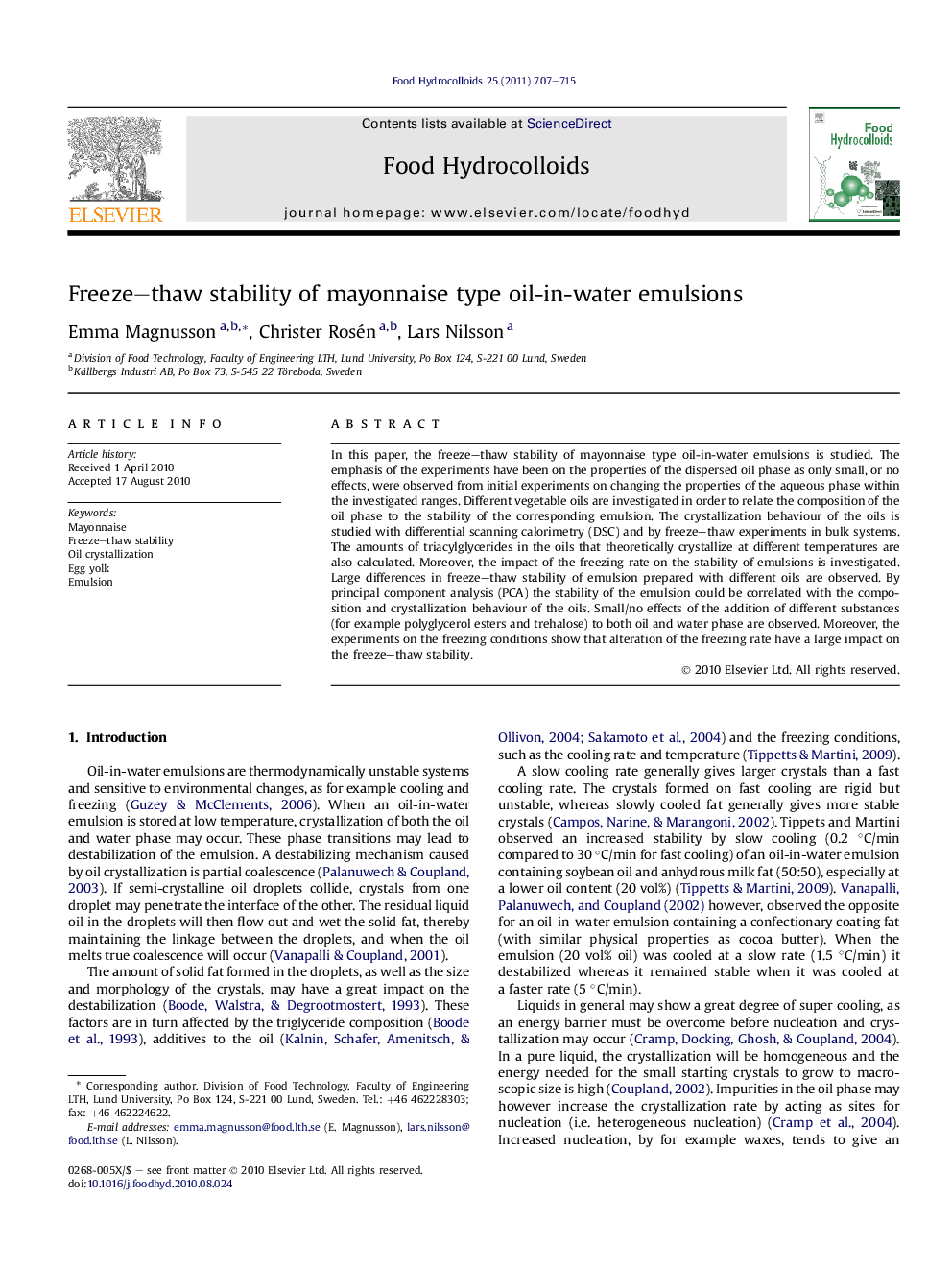| Article ID | Journal | Published Year | Pages | File Type |
|---|---|---|---|---|
| 605195 | Food Hydrocolloids | 2011 | 9 Pages |
In this paper, the freeze–thaw stability of mayonnaise type oil-in-water emulsions is studied. The emphasis of the experiments have been on the properties of the dispersed oil phase as only small, or no effects, were observed from initial experiments on changing the properties of the aqueous phase within the investigated ranges. Different vegetable oils are investigated in order to relate the composition of the oil phase to the stability of the corresponding emulsion. The crystallization behaviour of the oils is studied with differential scanning calorimetry (DSC) and by freeze–thaw experiments in bulk systems. The amounts of triacylglycerides in the oils that theoretically crystallize at different temperatures are also calculated. Moreover, the impact of the freezing rate on the stability of emulsions is investigated. Large differences in freeze–thaw stability of emulsion prepared with different oils are observed. By principal component analysis (PCA) the stability of the emulsion could be correlated with the composition and crystallization behaviour of the oils. Small/no effects of the addition of different substances (for example polyglycerol esters and trehalose) to both oil and water phase are observed. Moreover, the experiments on the freezing conditions show that alteration of the freezing rate have a large impact on the freeze–thaw stability.
Graphical abstractFigure optionsDownload full-size imageDownload as PowerPoint slide
